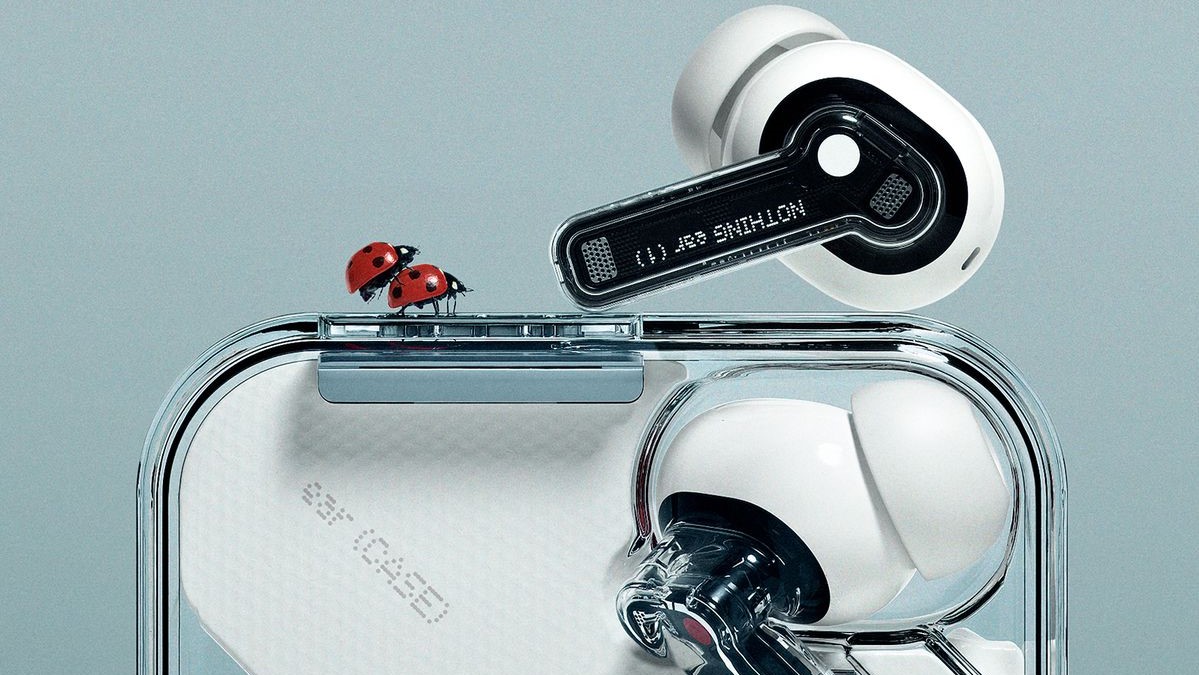Apple AirPods are under threat – could the Nothing Ear 1 dethrone them?

Sign up for breaking news, reviews, opinion, top tech deals, and more.
You are now subscribed
Your newsletter sign-up was successful
The company called Nothing unveiled its new true wireless earbuds, the Nothing Ear 1, via YouTube on Tuesday announcing their global availability in 45 countries starting on August 17. In the US, the earbuds will cost $99 (around £70, AU$130) and in India they’ll be ₹5,999.
That price seriously undercuts the most well-known true wireless earbuds, the Apple AirPods, by a significant amount while offering even more features like active noise cancellation, 34 hours of battery life with the charging case and 11.6mm drivers.
Those larger drivers have been tuned by the team of Swedish audio engineers at Teenage Engineering, and with three built-in microphones, they promise clear call quality, too.
That being said, what looks incredibly unique about Nothing’s new true wireless earbuds are their clear exterior and case that allows you to see the inner workings of the buds and, according to their designers, make sure they’re actually in their case before you take them out with you.
Check out the full reveal event on YouTube below:
Analysis: Can the Nothing Ear 1 stand up to the AirPods?
While we don’t think the Apple AirPods are the best true wireless earbuds on the market, it’s hard to refute their popularity. From Olympic athletes to celebrities, everyone seems to be sporting a pair of Apple’s famous buds.
According to Statista's metrics, Apple led Samsung, Xiaomi, Sony and others with 41% of all total true wireless earbud sales last year. All other manufacturers combined only accounted for around 30% of sales.
Sign up for breaking news, reviews, opinion, top tech deals, and more.
Now, the Nothing Ear 1 definitely offer something different in the form of a clear exterior, super-long battery life and active noise cancellation, all at a very reasonable price point. That should make them pretty compelling – and yet, they're in an ultra-competitive space alongside the biggest names in tech like Samsung, LG, Sony, Apple, Amazon and dozens and dozens of other players.
So how likely is it that Nothing will make a dent in Apple’s audio sales? Unfortunately, not much. Others like Samsung and Sony have tried and failed to usurp the AirPods as one of the highest-selling earbuds on the market with products that have similar sale prices and feature sets.
Also working against the Ear 1 is that they’re not cheapest true wireless earbuds from any major audio maker – Samsung and Sony have each have earbuds at this price point, for example, and there are hundreds of knock-offs on Amazon that promise similar results – though the Ear 1 are cheaper than AirPods.
Nothing as a company doesn't have much clout outside of the tech industry. It's basically the same problem OnePlus had with its true wireless earbuds two years ago. (Carl Pei, OnePlus' co-founder, is the founder and CEO of Nothing, so that makes sense.) Nothing is slightly different in that it's newer and scrappier, and Pei has plans to create "a seamless digital future" of which the Ear 1 are just the first part of.
From our point of view, the Ear 1 are certainly interesting contenders in the arena of true wireless earbuds – crowded as it is – and with enough hype behind them, could be a real rival for AirPods. They'll have to be great to succeed here, however, and without hearing them for ourselves, it's tough to say how they'll be received.
If Nothing can deliver performance on par with the Sony WF-1000XM4 at half the price, it could very well win the battle against Apple's earbuds. If it doesn't, well, it will join the ranks of Samsung, Sony, Amazon, LG and dozens of others who have so far tried and failed to outsell and out-market Apple.
- Looking to buy something other than AirPods? Check out our list of the best wireless earbuds

Nick Pino is Managing Editor, TV and AV for TechRadar's sister site, Tom's Guide. Previously, he was the Senior Editor of Home Entertainment at TechRadar, covering TVs, headphones, speakers, video games, VR and streaming devices. He's also written for GamesRadar+, Official Xbox Magazine, PC Gamer and other outlets over the last decade, and he has a degree in computer science he's not using if anyone wants it.